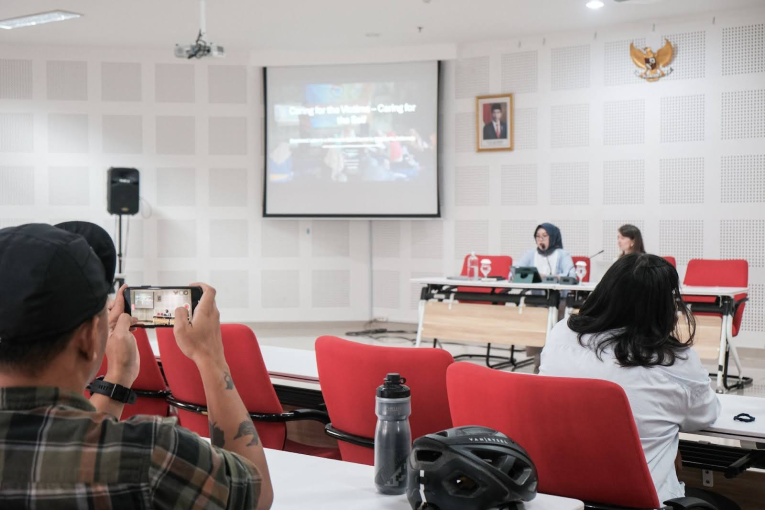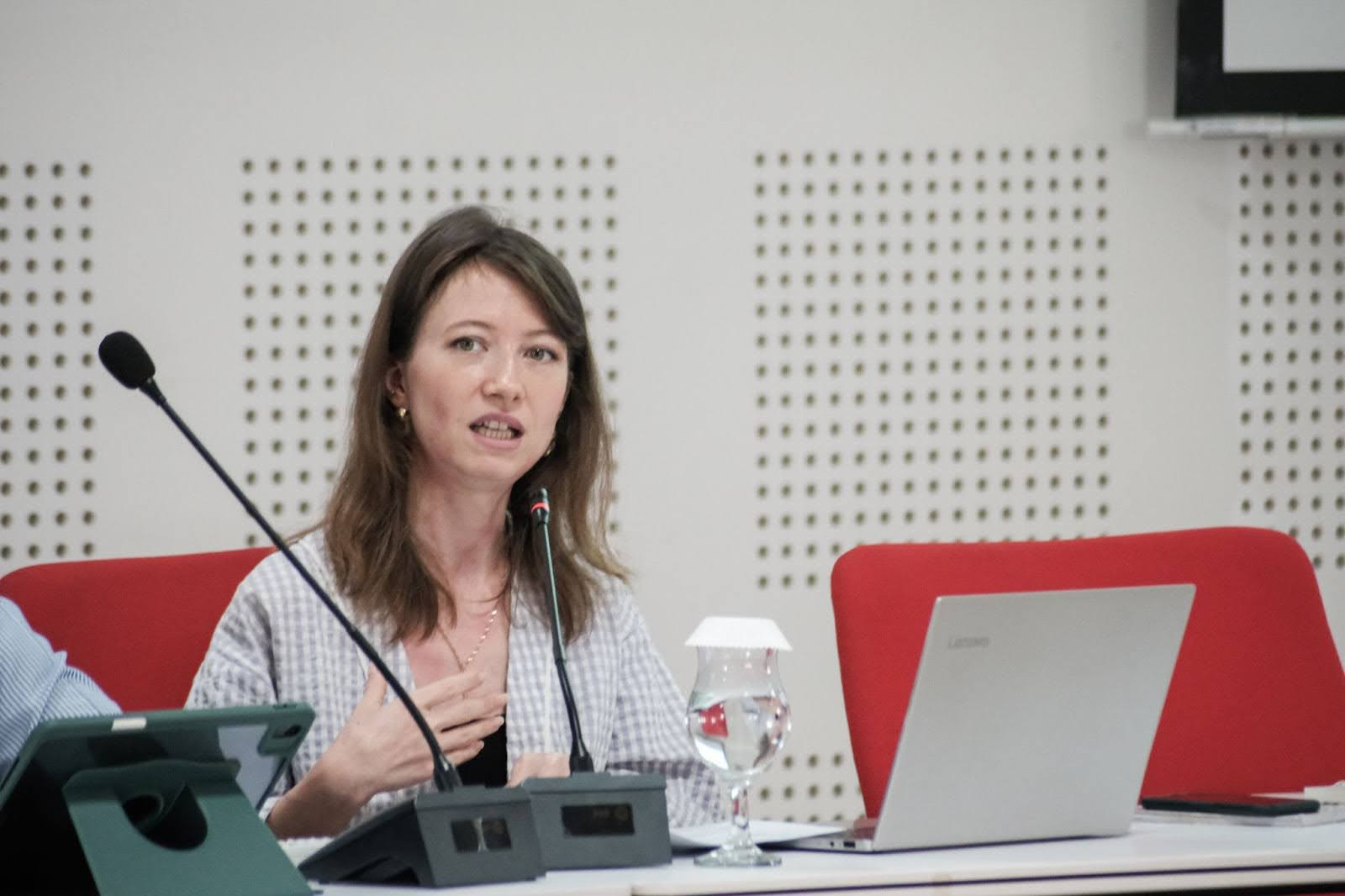
The Women’s Crisis Center is a place for complaints of various cases of violence experienced by women. So far, public attention has centered on the development of legal cases, and places the victim as the sole subject who experiences the effects of trauma. In fact, the traumatic effect spreads to other actors who listen and fight for the case. On the occasion of the Caring for the Victim, Caring for the Self seminar (27/08/2024), the Anthropology Department of the Faculty of Arts UGM invited Mona Elisa Behnke to share the results of her months of research with the assistants at one of the Women’s Crisis Centers in Java, especially Yogyakarta.

Mona Behnke is a doctoral candidate in Social and Cultural Anthropology at Free University Berlin, Germany. Her Master’s thesis was on hyperreality, state rhetoric and collective memory in contemporary Indonesia, and combined her interest in psychological and visual anthropology with a philosophical approach. After graduation, Mona worked for some time as a business anthropologist in the field of user experience and the organization of work structures. In her PhD project, she focused on the emotional labor of social assistance workers in a women’s crisis center in Java, Indonesia, touching on issues of emotion, gender, and conflict management.
Working in the humanitarian field has the consequence of great challenges, not only in terms of legal assistance skills, but also the skills that must be possessed to work in the field. Basically, gender itself is labor, where the articulation of actions, behaviors and performance are socially constructed in harmony. Women are considered more flexible in absorbing emotions and navigating concerns. Being an advocate for cases of violence against children and women makes them have to be able to navigate themselves technically and emotionally. Caring is the main asset that must be possessed by the assistants. Mona’s research tries to answer how care is practiced in a neutral environment through emotional labor from psychological and legal assistants.
Plunging as a companion shows that they consciously decide to enter a non-profit institution ready to experience institutionalization in three fundamental aspects, namely emotional labor, order of feelings, and emotion repertoires. ‘Emotional Labor’ refers to the management of emotions carried out to fulfill work performance when faced with clients. Facilitators are required to be able to harmonize their emotions with a socially constructed hierarchy or order. They must understand what emotions are allowed to be shown and not when listening to client stories. Repeated mentoring experiences shape their knowledge and memory of the repertoire of emotions when assisting clients. Furthermore, the process of assisting cases of violence against women and children has a dynamic approach both feminist and gender.
Listening to the emotions released by the client makes the companion experience second traumatization. This opens up further discussion that the experience of trauma is not only experienced by subjects who are directly treated with violence, but those who absorb the emotions of victims will also experience ‘second traumatization’, such as assistants and sign language interpreters. Emotional and mental exhaustion becomes the point where the assistants have an experience with the victim, beyond their technical skills. Mona describes the emotional flow of the helper and the victim in an interesting diagram, how the helper has to empty their emotional glass between before and after entering the hot table (where the client tells about their case). They professionally process their emotions in order to maintain themselves mentally so that they can continue to assist victims. This discussion brings us to the fact that the advocates actually have the potential to experience unequal care, where they give their full care to others, but they do not get the same care because they are considered not victims even though they absorb trauma from clients every day and fight for them. Sometimes, both survivors and caregivers feel very grateful when they can forget a very painful traumatic experience. From this we can conclude that forgetting is not a passive thing, but an active process that is also selective in building individual and collective memory. The ability to forget is also a valuable skill in emotional labor, in addition to the ability to remember which has been widely applied.
This discussion ended with several stories of assistants who were carrying out their temporal agencies by caring for each other and strengthening the emotional conditions of fellow assistants. Activities such as watching movies, joking, walking, telling stories and laughing out loud are a form of temporal agencies for the assistants so that their mental state is maintained and they can return to caring for other victims.
Author: Nuzul Solekhah
Photo: Puspita Nindya Sari

